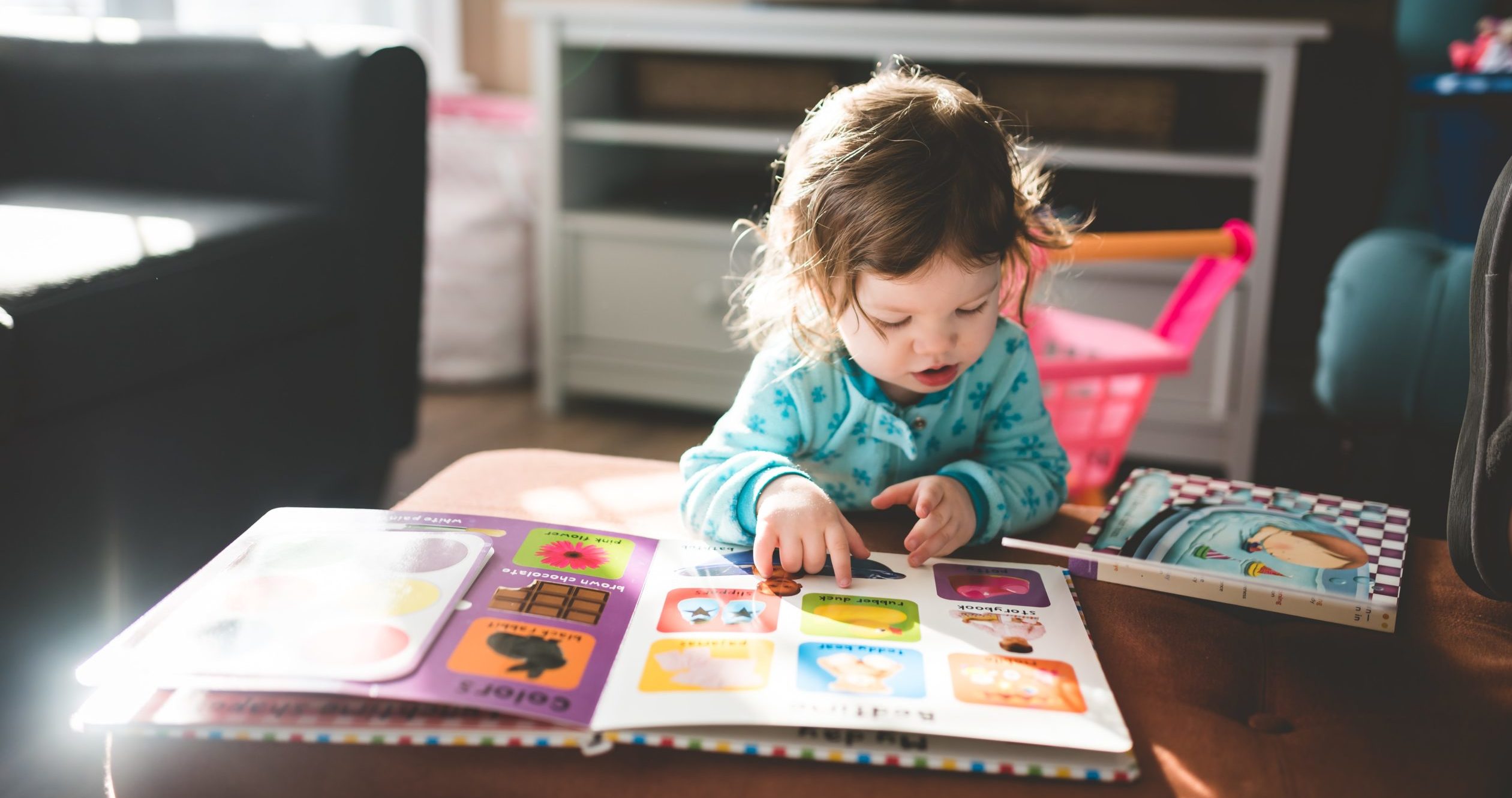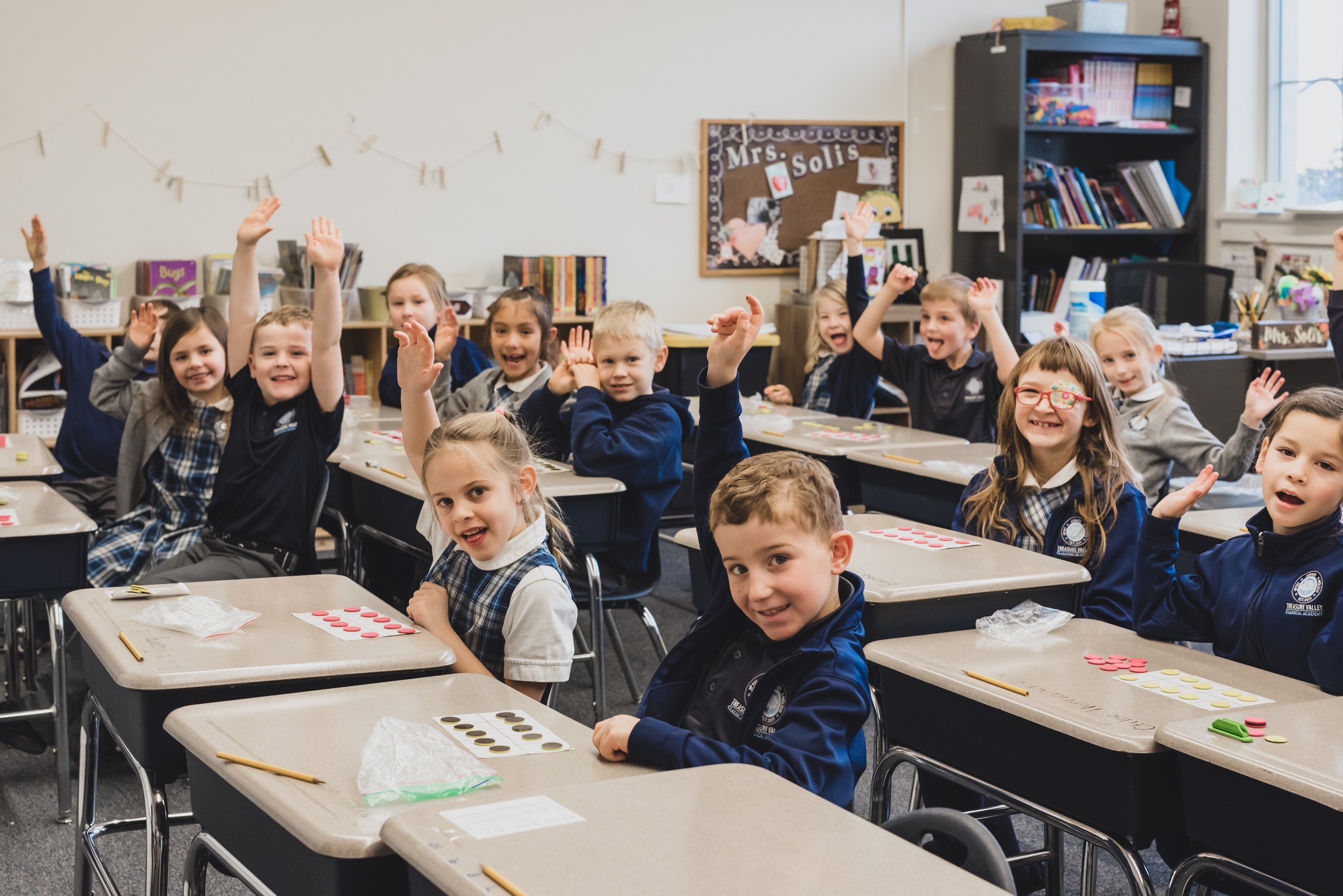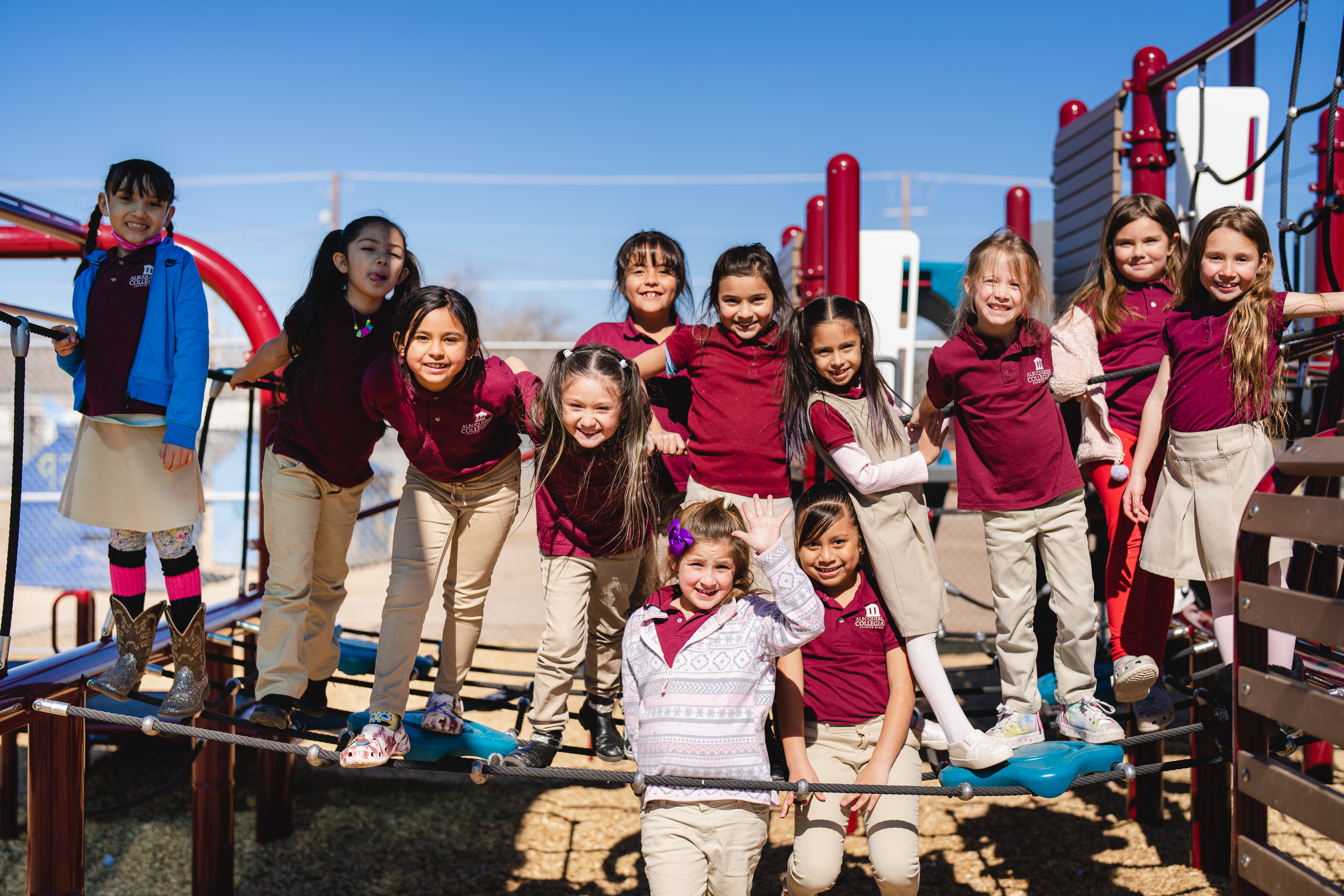
Resources for Families with Young Children Learning At Home
 Bluum and Public Impact partnered to curate a list of resources that families may use at home to support young learners—preschool to early elementary—during distance learning. This document compiles online resources, most of which are available at no cost, that address some foundational building blocks of early learning:
Bluum and Public Impact partnered to curate a list of resources that families may use at home to support young learners—preschool to early elementary—during distance learning. This document compiles online resources, most of which are available at no cost, that address some foundational building blocks of early learning:
- These resources address five key components of reading: phonemic awareness, phonics, vocabulary, fluency, and reading comprehension
- These resources address early math skills such as recognizing numbers and counting; recognizing shapes, patterns, and spatial relationships; and developing an early understanding of mathematical concepts such as time, measurement, and probability.
- Social-emotional learning. These resources focus on the development of self-awareness, self-management, social awareness, relationship skills, and responsible decision-making.
Most of these resources include activities and videos that young children may use independently or with family guidance.Some are specifically focused on providing guidance to families on supporting their children’s development of early literacy, numeracy, and social-emotional skills.
Literacy Resources
| Resource Description | Age Target | Resource Purpose(s) |
| These resources from the Reading League and PBS, available at no cost on YouTube, include a series of video lessons for young children and resources for parents focused on developing reading skills based on the science of reading, an evidence-based instructional approach centering on practice in phonics, phonemic awareness, vocabulary, comprehension, and fluency.
The Reading League, a national nonprofit, focuses on improving literacy outcomes for students by raising family and educator awareness of the science of reading. |
PK-3 | ✓ Independent Student Practice
✓ Parent & Guardian Education
|
| A free catalog developed by ReadWorks features easy-to-use reading content, curriculum, and ebooks for young children designed to support students’ independent practice and educators’ and families’ at-home or classroom instruction. The ReadWorks website includes webinars, one-pagers, and video tutorials for parents describing how to use ReadWorks resources with their children.
ReadWorks is a national nonprofit that aims to boost reading proficiency by teachers and families with integrated tools and content that can support at-home or classroom instruction. |
K-12 | ✓ Independent Student Practice
✓ Family Practice
|
| This library of resources curated by Reading Rockets includes articles and tips for families on helping their children develop the core components of literacy. The Reading Rockets library also features PBS programming (“Launching Young Readers”) and online and at-home activities for children, and a search tool that catalogs over 5,000 books.
Reading Rockets is a national public media literacy initiative that offers information and resources on how young children learn to read, why so many struggle, and how caring adults can help. |
PK-6 | ✓ Independent Student Practice
✓ Parent & Guardian Education ✓ Family Practice |
| Free resources curated by Reading Partners include a YouTube literacy skills building series for parents/caregivers and a texting service that provides parents/caregivers with tips, games, and activities to use with their children to promote and develop literacy.
Reading Partners, a national nonprofit, offers direct reading programs and services to schools and families seeking to become the best reading partners for kids. |
K-4 | ✓ Parent & Guardian Education
✓ Family Practice |
| This library from Learning Ally includes over 80,000 human-read audiobooks designed for struggling readers, specifically students who have dyslexia or other learning differences. Access to the library costs $135/year, and membership includes parent resources, reading programs for students to engage in, and an online community for sharing tips and challenges.
Learning Ally is a nonprofit dedicated to providing literacy tools to support students with learning differences. |
3-12 | ✓ Independent Student Practice
✓ Parent & Guardian Education ✓ Family Practice |
| Springboard’s free Connect app helps families track their child’s reading progress at home. Parents/caregivers receive regular reminders and personalized reading tips via text message through the app in English or Spanish.
Springboard Collaborative aims to close the literacy gap between home and school by coaching educators and family members to help kids learn to read. |
PK-4 | ✓ Family Practice |
Numeracy Resources
| Resource Description | Age Target | Resource Purpose(s) |
| PBS Kids features a curated library of online and printable materials focused on supporting at-home numeracy learning and practice for children ages 2-8. Resources include a range of games, apps, crafts, experiments, and printable activities that children can use independently or with family guidance.
The Public Broadcasting Services (PBS), is the United State’s “largest state for the arts and a trusted window to the world.” Its educational media supports child development and success in school. |
PK-3 | ✓ Independent Student Practice
✓ Parent & Guardian Education ✓ Family Practice |
| The Math at Home Toolkit from NAEYC features a variety of online resources and activities for families to use with young children to learn about numbers and other mathematical concepts including shapes, sorting, measurement, and time.
The National Association of Young Children (NAEYC) is the national preschool accreditation organization. |
PK-3 | ✓ Independent Student Practice
✓ Parent & Guardian Education ✓ Family Practice |
| The MiniMath mobile-friendly app from Bedtime Math is designed for families to explore math problems through routine, child-friendly contexts. Bedtime Math also provides a library of resources for family-guided or independent numeracy practice for children ages 2-8. Resources include daily math assignments, activities, and books.
Bedtime Math is an organization with a mission to support early childhood numeracy learning by incorporating it into a family routine. |
PK-3 | ✓ Independent Student Practice
✓ Family Practice |
| These resources from Young Mathematicians include research-driven learning supports for young children, ages 2-8. Resources include training for parents on the mindset for learning, and printable books, games, and activities for families to do together.
Young Mathematicians is a research program in early mathematics at the Education Development Center. The program develops tools and resources for families and teachers to support young children numeracy and motivation skills. |
PK-3 | ✓ Independent Student Practice
✓ Parent & Guardian Education ✓ Family Practice |
| Khan Academy Kids, created by Khan Academy, provides self-paced, interactive content software that incorporates practice problems, videos, and articles for all students. “Early Math” includes counting, addition and subtraction within 10-1000, place values, measurement and data, and geometry.
Khan Academy is a national nonprofit organization with a mission of providing “free, world-class education to anyone, anywhere.” |
PK-5 | ✓ Independent Student Practice
✓ Parent & Guardian Education ✓ Family Practice |
| Age of Learning’s desktop and mobile resource, ABC Mouse, is a program that collects over 850 learning lessons and over 10,000 learning activities in guided-learning software in math, reading, science, and colors for children ages 2-7. Resources include online games, books, songs, puzzles, art, printables, progress tracking for parents, and more. Families must have an account to use the resources, which costs $10 per month.
Age of Learning is an international organization that blends innovative technology with early childhood curriculum to create learning programs to support literacy and numeracy. |
PK-5 | ✓ Independent Student Practice
✓ Parent & Guardian Education ✓ Family Practice |
| The Wide Open School features free resources from Common Sense Media and 75 partner organizations, including Khan Academy Kids, PBS Kids, Noggin, Akili and Me, and Great Minds, curated to support development in math, reading, writing, and social-emotional learning at home during the coronavirus pandemic. Resources include online interactive lessons, videos, worksheets and online applications.
Common Sense Media is a nonprofit organization providing education and advocacy to families to support safe technology and media use for children. |
PK-3 | ✓ Independent Student Practice
✓ Parent & Guardian Education ✓ Family Practice |
Social-Emotional Learning (SEL) Resources
| Resource Description | Age Target | Resource Purpose(s) |
| This video from CASEL, available on YouTube in English and Spanish, gives parents and caregivers an overview of social-emotional skills and is intended to help families foster social and emotional learning in their children.
The Collaborative for Academic, Social, and Emotional Learning (CASEL) is a trusted source for knowledge about high-quality, evidence-based practices for social and emotional learning. |
PK-12 | ✓ Parent & Guardian Education
|
| These free resources curated by Confident Parents, Confident Kids include a list of recommended SEL games and activities for families to do with their children, recommended fictional books for children sorted by age group, and readings for parents to learn more about SEL research.
Confident Parents, Confident Kids is a public website created by Jennifer Miller, a leading expert in SEL, meant to assist parents in supporting their child’s social and emotional development. |
PK-12 | ✓ Parent & Guardian Education
✓ Family Practice |
| These free family resources from Harvard’s Making Caring Common Project include tips, resource lists, and discussion guides for families on supporting their children to develop key SEL skills like empathy, gratitude, and diligence, and activities for families to do with children.
Harvard’s Making Caring Common Project works directly with schools, researchers, and national partners to support parents in raising caring and ethical children who are concerned about others and the common good. |
PK-12 | ✓ Parent & Guardian Education
✓ Family Practice |
| This parenting guide from NBC and the Chan Zuckerberg Initiative features experts’ advice on parenting and catalogs resources and articles with tips and benchmarks for children’s academic, physical, and social-emotional growth by grade level. Families may use this resource to find concrete suggestions for daily academic, physical, and social-emotional activities that are appropriate to their children’s grade level.
|
PK-12+ | ✓ Parent & Guardian Education
✓ Family Practice |
| Playworks’ free social-emotional learning online video game guide catalogs over 150 games based on the specific social-emotional skills they help support.
Playworks is a national nonprofit that helps schools and youth programs create recess and play environments accessible to all children. |
PK-6 | ✓ Family Practice |
| Free video resources from Girl Leadership include a parent education series on raising confident and healthy daughters and a playlist of mindfulness meditations for young girls.
Girl Leadership is a national nonprofit working to empower young girls by creating support networks, programming, and resources to foster social-emotional and leadership development. |
K-12 | ✓ Independent Student Practice
✓ Parent & Guardian Education
|
| In this series of online video games from Centervention, students play through behavioral intervention scenes to learn key social-emotional skills. Interactive games Zoo Academy (K-1), Zoo U (2-4), SS GRIN (3-5), and Hall of Heroes (5-8) assess students’ social and emotional learning development as they progress through. One participation license costs $10 per year.
Centervention develops online games for students in grades K-8 to improve social and emotional skills. |
K-8 | ✓ Independent Student Practice
✓ Family Practice |
—




